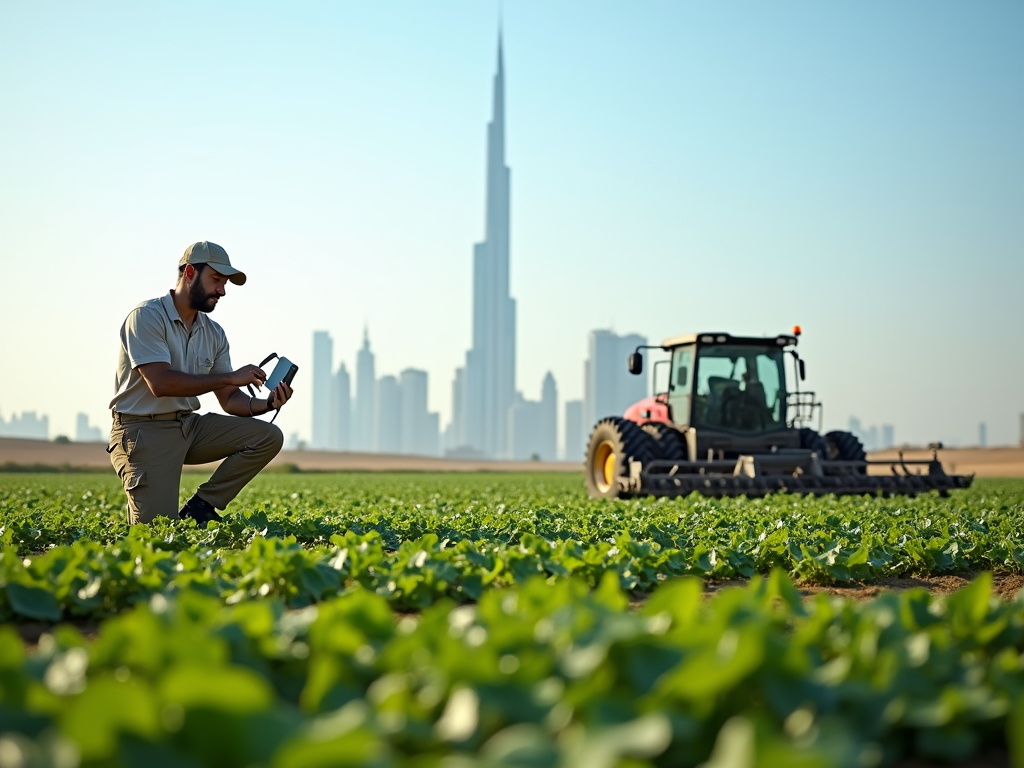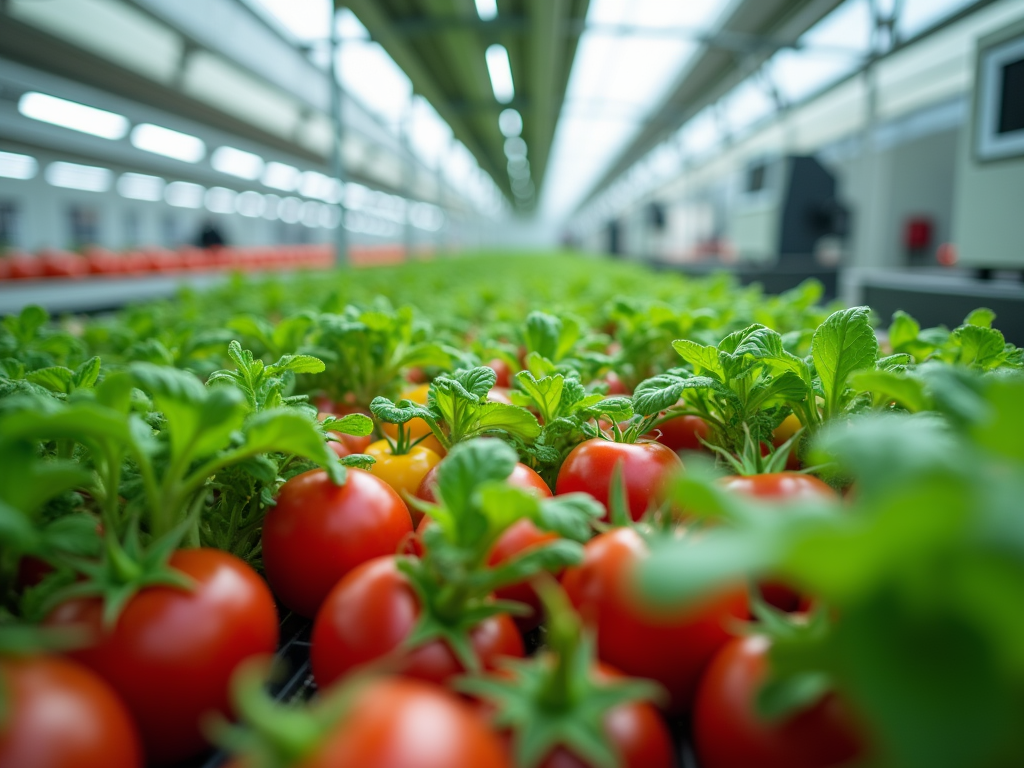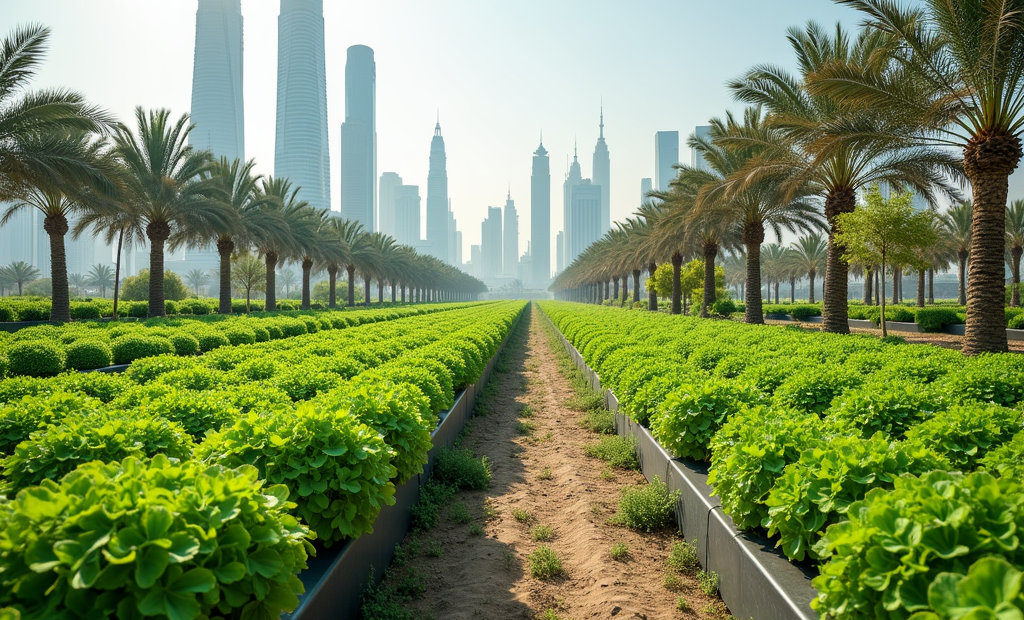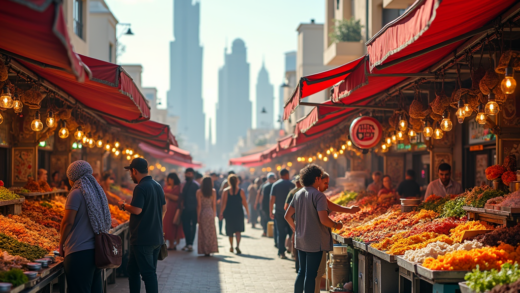The Potential of Dubai’s Smart Agriculture Projects
Dubai is emerging as a global leader in smart agriculture, leveraging innovative technologies to combat challenges faced by traditional farming, such as water scarcity and land infertility. The main topic of this article explores how Dubai’s initiatives in smart agriculture are reshaping the agricultural landscape and ensuring food security. With impressive investments in advanced systems, Dubai aims to achieve sustainable food production while maximizing resource efficiency. By harnessing artificial intelligence, hydroponics, and renewable energy, Dubai is setting benchmarks that other nations will aspire to follow in their quest for sustainable agriculture solutions.
Understanding Smart Agriculture

Smart agriculture refers to the integration of advanced technologies into farming practices to enhance productivity, efficiency, and sustainability. In a region like Dubai, where arable land is limited, smart agriculture becomes imperative. Core components of smart agriculture include:
- Precision Farming: Utilizing sensors and data analytics to monitor crop health and optimize inputs like water and fertilizers.
- Hydroponics and Vertical Farming: Techniques that allow crops to be grown in controlled environments, maximizing yield while minimizing space and water use.
- Data-Driven Decision-Making: Implementation of IoT devices to collect real-time data, enabling farmers to make informed decisions.
- Renewable Energy Integration: Employing solar panels and wind energy to power agricultural operations sustainably.
These technologies are critical in overcoming the vulnerabilities that traditional farming faces in Dubai’s unique climate.
Key Projects Transforming Agriculture in Dubai

Dubai has launched several key projects that are at the forefront of its smart agriculture revolution. Some notable initiatives include:
- The Dubai Urban Farming Agenda: A comprehensive plan focused on developing urban farms throughout the city, promoting local food production.
- The International Center for Biosaline Agriculture: Conducting research to develop saline-resistant crops, maximizing the use of brackish water.
- The Dubai Food Security Strategy: Aiming to increase local food production by 30% by 2025 through smart agricultural techniques.
These projects illustrate Dubai’s innovative spirit and commitment to sustainable agricultural practices, ensuring food security while addressing environmental concerns.
The potential benefits of smart agriculture in Dubai extend beyond mere food production. They include:
- Water Conservation: Advanced irrigation techniques drastically reduce water usage, essential in an arid environment.
- Increased Crop Yield: Efficient resource management leads to higher productivity, thus supporting the growing population.
- Improved Food Quality: Controlled environments promote the growth of healthier crops, reducing pesticides and harmful chemicals.
- Economic Growth: Smart agriculture supports job creation and can attract investments in agri-tech.
Overall, these advantages contribute to a sustainable and self-sufficient food system that is vital for a rapidly growing urban population.
Challenges Ahead
Despite the promising outlook for smart agriculture in Dubai, several challenges still loom. First, the initial investment cost for advanced technologies can be high, potentially deterring small-scale farmers from participation. Second, there is a need for adequate training and education for workers to ensure they can operate and maintain advanced agricultural systems. Third, data privacy and cybersecurity concerning farm management systems require attention. Lastly, laws and regulations governing smart agriculture must evolve to foster innovation while ensuring environmental compliance. Addressing these challenges will be critical for the sustained success of Dubai’s smart agriculture initiatives.
Conclusion
Dubai’s smart agriculture projects are paving the way for a sustainable future in food production. Through technological advancements, the city is addressing its unique environmental challenges while ensuring food security and economic growth. Collaboration between the government, private sector, and academic institutions will further enhance the impact of these initiatives. As Dubai continues to innovate, it serves as a beacon for other regions, demonstrating how smart agriculture can transform traditional farming practices for a sustainable future.
Frequently Asked Questions
1. What technologies are mainly used in Dubai’s smart agriculture projects?
Key technologies include precision farming tools, hydroponics, data analytics, and renewable energy systems.
2. How does smart agriculture contribute to water conservation in Dubai?
Smart agriculture techniques, such as precision irrigation, allow for targeted and efficient water use, significantly reducing wastage.
3. What are the economic impacts of smart agriculture in Dubai?
Smart agriculture can lead to job creation, increased productivity, and attract investments in the agricultural sector.
4. What challenges does Dubai face in implementing smart agriculture?
Challenges include high initial costs, the need for training, data security concerns, and evolving regulations.
5. How can other regions learn from Dubai’s smart agriculture projects?
Other regions can adopt similar technologies and strategies tailored to their unique environmental challenges to enhance food security and sustainability.



